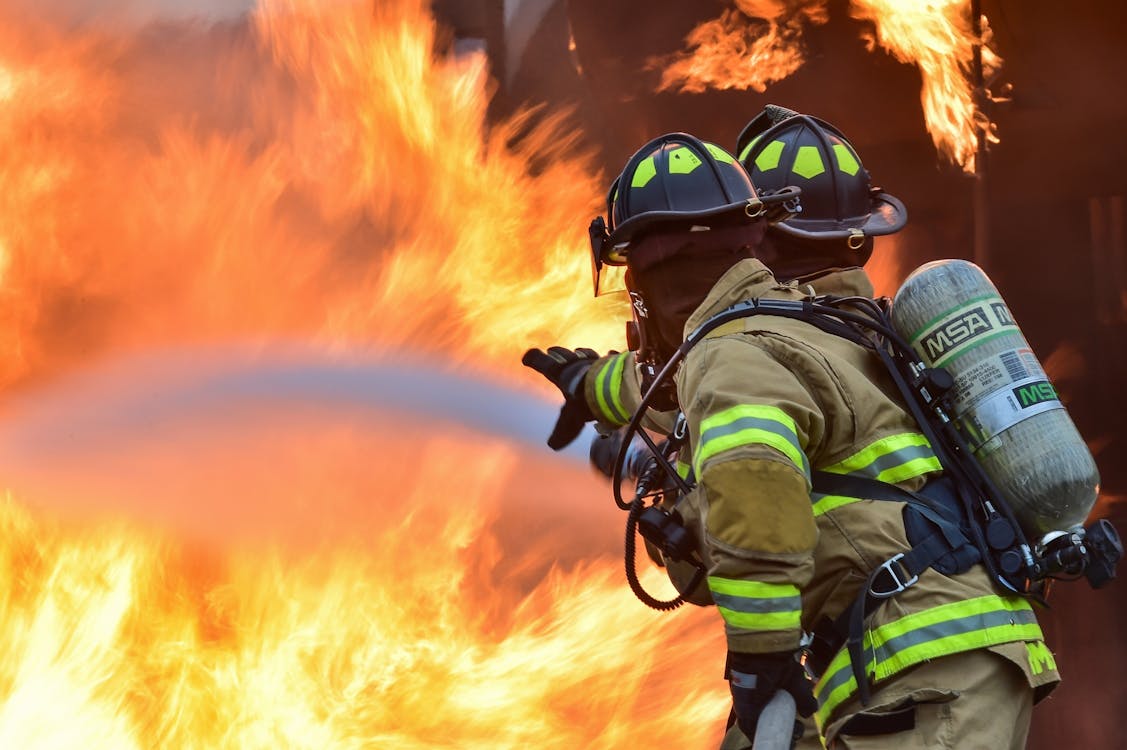Firefighting is a noble and essential profession, and our firefighters are indeed American heroes. According to an estimate by the National Fire Protection Association (NFPA), there were around 1,041,200 firefighters in the United States (including volunteer firefighters). Each year, this number is growing as many want to join this noble profession and serve their country.
You, too, may want to join this profession. However, it comes with risks that you should be aware of before deciding to become a firefighter.
Firefighting is dangerous work. In 2021 alone, there were over a million fires in the United States. In such situations, the firefighters are almost always the first responders. Only they are trained to deal with such emergencies in the best ways possible, and whenever the need arises, they never back down from risking it all.
Firefighters are often exposed to toxic fumes and smoke, as well as extreme heat and cold while working on an active fire scene. They also must frequently climb ladders, enter burning buildings, and carry heavy equipment. In addition, firefighters are at risk for injury due to falling debris or equipment failure.
These risks may be heightened if you work for a volunteer fire department or in an area with limited resources or training. Some states require formal training before becoming a firefighter. If yours does not, you must take the initiative to get some hands-on experience with equipment and procedures before signing up for a volunteer position.
Thus, it’s only logical that firefighters opt for firefighter insurance to get some peace of mind while combating these risks.
Table of Contents
What is Firefighter Insurance?
Firefighter insurance is a type of insurance that covers you if you are injured or killed in the line of duty. It also covers your family if they are injured or killed as a result of your job. It also covers you if you get sick while on duty, but only if it directly results from the job. The insurance also deals with any damages the fire department might incur from your injury.
Firefighter insurance is also known as public safety officer (PSO) insurance.
If you’re injured in the line of duty and are eligible for workers’ compensation, you will be covered by your employer’s policy. However, this coverage does not cover all injuries or other damages that may occur during an incident. It also does not cover any damage to your own home or property if you’re off-duty and responding to an emergency call at home or elsewhere.
Firefighter Insurance offers additional protection for these situations by providing coverage for injuries that occur during non-work activities—such as during training exercises or volunteer work—and for incidents involving personal property damage outside of the workplace environment.
Are Volunteer Firefighters Entitled to Firefighter Insurance?
Volunteer firefighters are often compensated for their work with a variety of firefighter benefits, including training, equipment, and retirement options. Firefighters who volunteer their time and labor to protect communities are also entitled to some of these benefits. Volunteer firefighters can be eligible for firefighter insurance if they meet the requirements and follow the steps outlined by their state’s insurance department.
The most common form of compensation for volunteer firefighters is a monthly stipend or stipend check that provides money to the firefighter regularly. This compensation is usually based on the number of hours worked, or the number of calls responded to during a month. Some states offer additional reimbursements for mileage or uniforms at certain times throughout the year.
Some states require all fire departments to carry specific types of insurance policies on their vehicles, equipment, buildings, and other assets used by volunteers during their service time as well as during training exercises.
What Coverage Does Firefighter Insurance Provide?
Firefighters are exposed to numerous hazards, such as smoke inhalation, burns, falls and slips, electrocution, and vehicle accidents. Firefighters also put themselves in danger when they respond to medical calls in emergency vehicles.
Firefighter insurance covers a range of hazards that may be encountered on the job. These include:
- Medical payments for firefighters injured on the job
- Death benefits for surviving family members
- Disability income for wounded firefighters who cannot work
- Loss of earnings due to temporary or permanent injuries sustained on the job
Benefits of Getting Firefighter Insurance
The benefits of getting firefighter insurance are numerous. Firefighters are often on the front lines of many dangerous situations, and they need more than just their training to protect themselves.
Firefighter insurance can help you with a variety of things, including:
- Medical Expenses: Your medical costs could be covered if you are injured on the job and need physical therapy, surgery, or other treatments.
- Death Benefits: If the worst happens and you pass away, your family would be able to receive financial support from this type of policy.
- Disability Coverage: If you become injured and cannot work for an extended period, this type of policy will help cover your lost wages as well as other expenses related to being unable to work, such as transportation costs or childcare expenses while off work recovering from an injury or illness caused by being exposed to smoke or toxic fumes while doing your job as a firefighter during an emergency situation (such as fighting a fire).
As per reports by the NFPA, a total of 135 on-duty firefighters died in 2021 in the United States. These people risked their lives to save others. You, too, will have to accept the risks that come with this profession should you ever participate in the first place. Knowing about firefighter insurance and what you and your loved ones can gain from it will give you a bit of peace as you head out to risk your life whenever duty calls.















:max_bytes(150000):strip_icc()/labgrownlede-2b7540f7f7404558a08f1a555862f3d3.jpg)
